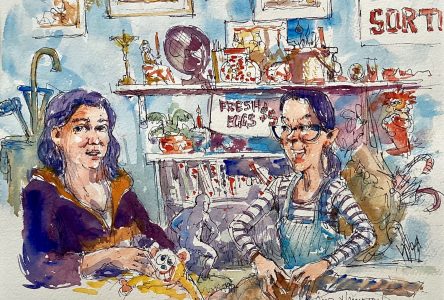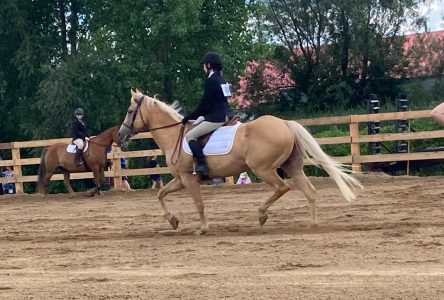Phyllis Sise never had a formal invitation into poetry. While words and their many meanings bounced around leather-bound notebooks and thin collections bearing powerful lines, Sise unlocked a door for herself, quietly slipping in the back while the poetry world looked elsewhere.
“My husband was a poet so I never really felt I should or could put words together and make sense,” explains Sise.
In 2000, Sise found herself immersed in the words and gatherings of the Sheffington Writer’s Group alongside esteemed writers such as Nick Fonda, Winona Matthews, Meredith MacKeen, Munira Avinger, Burn Purdon, and other interlopers. For 17 years, she enjoyed their weekly deadline, immersing herself in new forms of storytelling and wordplay.
Sise’s understanding of contemporary poetry began shifting in 2020, when she challenged local writer and publisher Angela Leuck to write a poem a day in April in response to poetry prompts published in Writer’s Digest for National Poetry Month. The pair wrote nonstop, and Sise kept pushing ahead, challenging Jan Draper and Gillian Eastly to join as well.
In 2021, Leuck countered with a new project for Sise, daring her to write a haiku a day. Sise delved deep into the practice of haiku writing, which stretched on for a year and a half. Leuck returned to Sise with a new proposition, this time with the offer to publish her 100 best haikus, which became Sise’s forthcoming debut poetry collection Spring to Lips.
Haiku is a type of short-form Japanese poetry that involves 17 syllables stretched over three lines. In their most traditional forms, a nature element from one of the four seasons of the year is also included, working to create an encompassing picture with a twist in the final line.
Having only 17 syllables to illustrate an image infused with movement is a challenge that Sise welcomes. The haiku’s form allows the writer to hone in on a specific image or feeling, leading to specific nature scenes and sentiments.
“Brevity has always appealed to me rather than using more words to say less,” admits Sise.
Spring to Lips is a collection of Sise’s best haikus from the past few years, weaving between scenes and inspired by the free world she finds on the blank page. Sise finds much inspiration through research, looking up deceptively simple topics such as tardigrades, moss, and war which inform the direction of her writing. The beauty present in the Eastern Townships provides her with endless natural inspiration, as do the waterways of Rivière-du-Loup, where she has a secondary residence with her sister.
the turkeys cross the road
all puffed up and boasting
election winners
“I can’t say I get it right all the time, but I certainly love the process,” she says. “I no longer need to challenge others; I provide more than enough for myself.”
Previously, longer forms of her work have appeared in Emergence: Contemporary Women Writers of the Eastern Townships of Quebec, Our Stories 2.0, and Water Lines.
She has also assisted in editing Hope and Resilience in the Time of COVID, a collection of childrens’ writing and pictures, which also features three of her poems.
Her words have made their way out into the world, seeking new homes of their own in the minds of readers both near and far. While she had never thought of herself as a poet before, it is now her wish that poetry is repopularized as a form of storytelling, settling in doctor’s offices alongside magazines. Everyone has room for poetry in their lives; it’s only a matter of adjusting one’s way of seeing.
Brome Lake Books will be hosting the launch of Spring to Lips on April 30 alongside Ditch Walker by Bernice Sorge and Last Summer Pear by Angela Leuck, bringing a fitting end to the last day of poetry month. There will be another launch online through WHWN on May 13.


